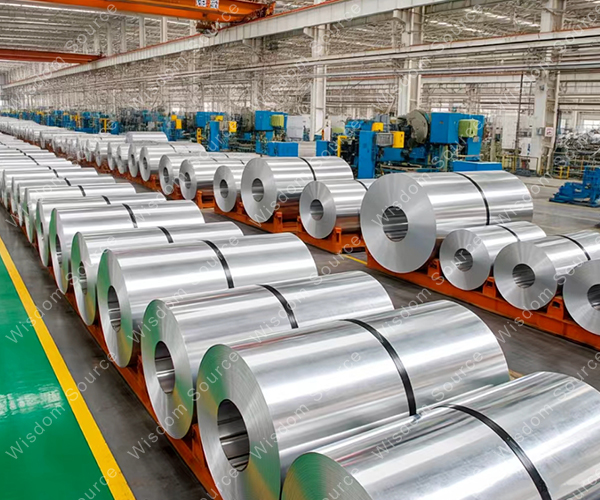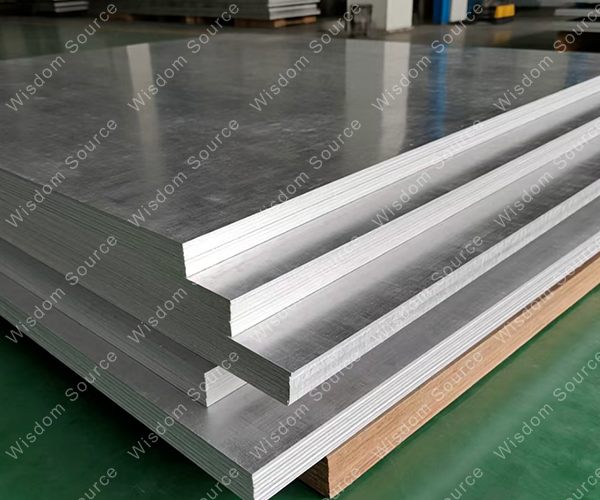Tensile Strength Of titanium Plate: Performance, Application And Comprehensive Considerations
Tensile Strength Of titanium Plate: Performance, Application And Comprehensive Considerations
Among many metal materials, titanium plate occupies an important position in the industrial field with its unique performance characteristics. Among them, tensile strength is one of its key mechanical performance parameters, which has attracted much attention.
1. Tensile Strength: The Key Performance Index Of Titanium Plate
Tensile strength refers to the maximum external force that a material can withstand during stretching. This parameter intuitively reflects the material's ability to resist fracture. For titanium plates, their tensile strength can generally reach more than 800 MPa, which means that when the titanium plate is subjected to greater tension, it can still maintain the integrity of the structure and is not easy to break. This characteristic makes titanium plates have significant advantages in application scenarios where they need to withstand high-intensity loads.
The tensile strength of the titanium plate is not fixed, it is mainly affected by factors such as the purity of the titanium plate, the grain size, and the heat treatment state. The higher the purity of the titanium plate, the less impurity content, the more uniform its internal structure, and the higher the tensile strength. Grain size also plays an important role. Small grains can hinder the movement of dislocations, thereby increasing the strength of the material. The heat treatment state has a significant impact on the tensile strength of the titanium plate by changing the internal organizational structure. For example, an appropriate heat treatment process can refine the grains and optimize the phase composition of the titanium plate, thereby improving its tensile strength.

2. Performance Advantages And Comparison Of Titanium Plate
As a metal, titanium has excellent mechanical properties and corrosion resistance. Compared with steel, titanium plate exhibits higher strength and stiffness. Although steel is also a commonly used structural material, the advantages of titanium plates are highlighted in some occasions where weight and corrosion resistance are required. The density of titanium plates is relatively small. Under the same strength requirements, the use of titanium plates can reduce the weight of the structure, which is particularly important for aviation, aerospace and other fields. At the same time, the excellent corrosion resistance of titanium plate allows it to be used for a long time in harsh environments without rusting and corroding as easily as some steels, thereby extending the service life of the material.
In the production process of titanium plate, its tensile strength can be further improved by precisely controlling the process parameters such as smelting, rolling and heat treatment. The smelting process can control the chemical composition of the titanium plate and reduce the impurity content; the rolling process can adjust the grain orientation and organizational structure of the titanium plate; and the heat treatment can finally optimize the performance of the titanium plate. The comprehensive application of these processes has enabled the performance of titanium plates to be fully utilized and improved.
3. Diverse Characteristics And Wide Application
In addition to its excellent performance in terms of tensile strength, titanium plate also has good corrosion resistance, weldability and processability. Its corrosion resistance allows titanium plates to work stably in corrosive environments such as chemical industry and marine engineering. In the chemical industry, titanium plates can be used in the manufacture of reactors, pipelines and other equipment to resist the erosion of various chemical substances; in marine engineering, titanium plates can resist the corrosion of seawater and are suitable for marine platforms, ships and other structural components.

The weldability of titanium plates is good, and it is easy to process them into various complex structures. Through the appropriate welding process, the high-quality connection between the titanium plates can be realized to meet the needs of different engineering structures. At the same time, the processing performance of titanium plate is also relatively excellent, and it can perform various processing operations such as cutting, stamping, and bending to make parts of various shapes and sizes.
These excellent characteristics make titanium plates widely used in aviation, chemical industry, marine engineering and other fields. Taking aircraft manufacturing as an example, titanium plates can be used to manufacture important components such as airframes, wings, and landing gear. The use of titanium plates to manufacture these components can not only reduce the weight of the aircraft and improve flight efficiency, but also enhance the corrosion resistance of the components and extend the service life of the aircraft, thereby improving the overall performance of the aircraft.
4. Comprehensive Consideration Of Cost And Process
However, titanium plates also have some limitations. Its price is relatively high, which is mainly due to the more complex refining and processing technology of titanium and the higher production cost. Therefore, when choosing and using titanium plates, its performance and cost-effectiveness need to be considered comprehensively. For some application scenarios with extremely high performance requirements and strong cost tolerance, titanium plate is an ideal choice; for some projects where performance requirements are not particularly demanding and cost-sensitive, you need to carefully consider whether to use titanium plate.
At the same time, the production technology and technical requirements of titanium plates are also high, and advanced technology and equipment support are required. From smelting to rolling, to heat treatment and processing, every link requires strict quality control and technical support. Only with perfect production technology and equipment conditions can high-quality titanium plate products be produced.
In summary, the tensile strength of titanium plate, as one of its important mechanical performance parameters, shows excellent performance. It has a wide range of application prospects in many fields with a variety of excellent characteristics. However, when choosing and using titanium plates, many factors such as their performance, cost and process requirements must be considered comprehensively to ensure that titanium plates can be used safely and efficiently to achieve the best economic benefits and engineering results.
